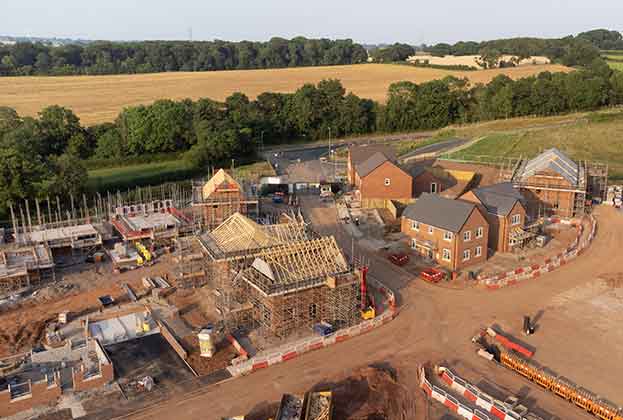The influence that data has on society and the economy cannot be overstated. Behind the virtual curtains of a myriad of platforms, from social media to TV on demand, sit the data centres that store the information we rely so heavily upon, enabling the ebb and flow of digital content.
Increasingly the foundation of most business activity, how do data centres fit within the planning system?
The volume of digital data stored and processed has grown exponentially and, in the same way that roads, trains and power stations are essential to connectivity, data centres are increasingly recognised as vital economic and social infrastructure.
As my colleague Dominic Whitfield highlights in his earlier blog (see Why data centres are crucial to keeping the country working under lockdown), there are significant limitations to where data centres can be located yet take-up almost doubled between 2018 and 2019. He further notes that in the midst of the Covid-19 pandemic this already strong demand is predicted to heighten further as multiple new UK entrants, notably hyperscalers with core business processes that access, process and disseminate information from the internet, look for suitable space.
The Government’s 2017 White Paper, Industrial Strategy: Building a Britain fit for the future, identified ‘a surge of infrastructure investment heralding a new technological era’. What can the planning system do to help satisfy demand?
Current experience shows that data centres are most accurately defined as a B8 use class activity, reflecting their primary purpose which is to store and distribute. The majority of local planning authorities show signs of agreement but to date no confirmation of their business class use has been given. It would seem that a sensible first step would be to clarify the status of data centres as economic (or business class) development.
The role that data centres play in driving innovation, economic growth and social progress is not yet fully recognised by decision makers in the planning sector and yet effective data management will be fundamental to many national and local initiatives including business startups and scale-ups, as well as the Smart Cities UK programme.
Finding sites suitable for data centre development is not a simple task, not least the need for guaranteed power supply from the grid as well as back up supply to ensure uninterrupted power. Connectivity to other communications infrastructure in the form of high bandwidth connections is also important. Local plan preparation provides an opportunity to assess future data centre requirements as part of wider economic and land use strategies.
Could the importance of data centres mean they sit in their own class? The introduction of a new class for data centres would need careful consideration, the timeliness of which remains to be seen.
.jpg)



.jpg)
.jpg)
.jpg)
.jpg)
.jpg)

